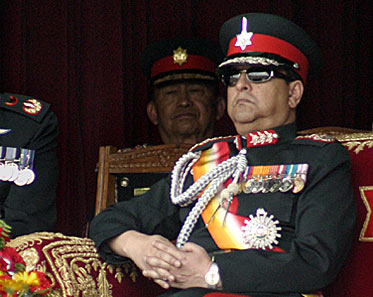The perception that in last five years the king has become weak no longer holds true. He is in fact rising in popularity largely due to the mistakes of the Maoists led governments.
Afroz Alam Sahil
It is now increasingly believed in Nepal that since the Parliament started to strip off the powers of King Gyanendra in 2006; Nepal has been politically volatile and has seen four Prime Minister in five years. The constitution making process has gone through rough weather. As the Supreme Court of Nepal has set a no extension time beyond November 2011, the current Prime Minister Baburam Bhattrai has promised to produce the first draft of the new constitution by the deadline.
But very few want to believe the words of the current PM.
The democratic process which started in 2006 to draft a new constitution has not been successful. In the meantime the royalists want the King back in power. The perception that in last five years the king has become weak no longer holds true. He is in fact rising in popularity largely due to the mistakes of the Maoists led governments. At a time when people are fed up with politics being done on issue like price rise, corruption, killings and kidnappings, many feel the need of the King at the centre. They feel their Nepal once known for beauty and serenity has now become increasingly intolerant and violent.
Raj Kumar Thapa of the Nepalese Supreme Court Bar Association is in pain to see that Nepalese politicians are dividing the country on caste lines. But he hopes that it should not last long as people would eventually reject it. He is of the opinion that some political leaders are opposing the so called democracy. He feels that “the Constitution making is also keeping the interest of the elite class. A national leader is required at this moment. Nepal does not have one national leader. All are confined to their political parties.”
To Thapa Constitutional Monarchy seems the only solution in dealing with the current crisis. He acknowledges that there were mistakes committed by the king and there were many dishonest and corrupt people around the King. One big lacuna was that king during his reign did not reach the common people and his coterie capitalized on it for their own benefit. It is now widely perceived that the King has realized his mistake and has started reaching out to common people and in turn has got immense support from them. Many Nepalese now want to see King Gyanendra back in power.
This is the first part of a series of articles on politics of democracy in contemporary Nepal. The author visited Nepal and interacted with people from a large spectrum of life.























